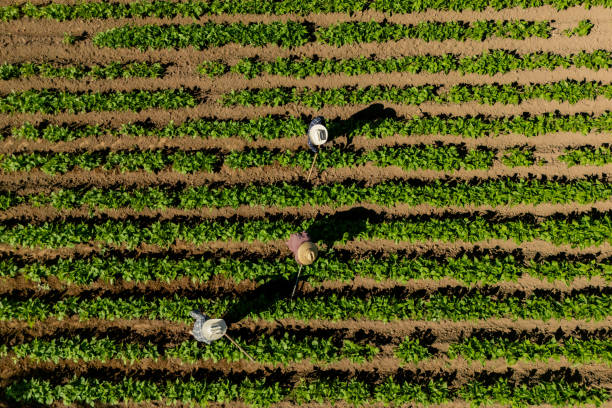Invest in Nigeria’s Farming Infrastructure Sustainable Agriculture Opportunities
Explore farming infrastructure opportunities in Nigeria with African Land. Invest in irrigation, storage, and agricultural development projects today.
Farming Infrastructure Nigeria
Nigeria’s agricultural sector is evolving rapidly, with increasing investment in farming infrastructure to boost food production, reduce post-harvest losses, and improve market access. Farming infrastructure in Nigeria plays a vital role in enabling sustainable and large-scale agricultural development — from irrigation systems and storage facilities to rural roads and digital monitoring tools.
Importance of Farming Infrastructure
Strong farming infrastructure supports every stage of agricultural production. It ensures efficiency, consistency, and profitability in both smallholder and commercial farming operations. Key components of Nigeria’s agricultural infrastructure include:
-
Irrigation systems for all-year farming and improved water management
-
Storage and processing facilities to minimize waste and increase value addition
-
Access roads and logistics networks to connect farms with urban markets
-
Renewable energy systems for powering equipment and cold chains
-
Digital agriculture tools for remote monitoring and smart farm management
These components create an ecosystem that supports farmers, investors, and agribusinesses to operate more effectively and sustainably.
Challenges and Opportunities
Despite major progress, many farming communities still lack adequate infrastructure. However, this gap represents a huge investment opportunity. Public-private partnerships and private investors are increasingly funding:
-
Solar-powered irrigation and water projects
-
Agricultural processing hubs and warehouses
-
Cold chain facilities for perishable goods
-
Smart farm technology and digital mapping systems
Investing in farming infrastructure doesn’t just benefit farmers — it strengthens Nigeria’s food supply chain and creates long-term value for stakeholders across the agricultural sector.
How Farming Infrastructure Supports Agribusiness
Improved infrastructure reduces production costs, improves product quality, and enhances export competitiveness. For agribusiness investors, reliable infrastructure ensures:
-
Efficient farm-to-market logistics
-
Reduced post-harvest losses
-
Increased productivity and profitability
-
Sustainable and scalable agricultural operations
These advantages make farming infrastructure development one of the most strategic entry points for investors looking to expand into Nigeria’s agricultural value chain.
Partner with African Land
At African Land, we work with investors, developers, and agribusiness operators to facilitate farming infrastructure projects across Nigeria and Africa. From land sourcing and feasibility assessments to connecting investors with engineering and management experts, we help transform agricultural potential into productive reality.
Whether you are building irrigation systems, storage facilities, or managed farm estates, African Land provides the right partnerships and advisory support to make your investment sustainable and profitable.


Comments